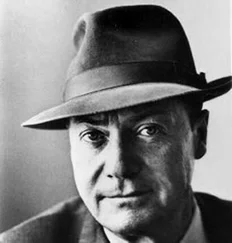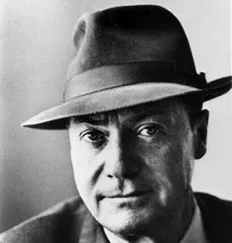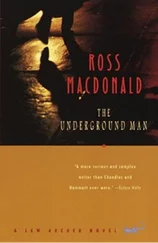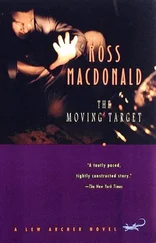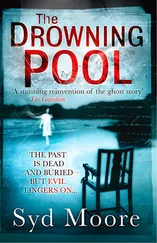Ross Macdonald - The drowning pool
Здесь есть возможность читать онлайн «Ross Macdonald - The drowning pool» весь текст электронной книги совершенно бесплатно (целиком полную версию без сокращений). В некоторых случаях можно слушать аудио, скачать через торрент в формате fb2 и присутствует краткое содержание. Жанр: Крутой детектив, на английском языке. Описание произведения, (предисловие) а так же отзывы посетителей доступны на портале библиотеки ЛибКат.
- Название:The drowning pool
- Автор:
- Жанр:
- Год:неизвестен
- ISBN:нет данных
- Рейтинг книги:5 / 5. Голосов: 1
-
Избранное:Добавить в избранное
- Отзывы:
-
Ваша оценка:
- 100
- 1
- 2
- 3
- 4
- 5
The drowning pool: краткое содержание, описание и аннотация
Предлагаем к чтению аннотацию, описание, краткое содержание или предисловие (зависит от того, что написал сам автор книги «The drowning pool»). Если вы не нашли необходимую информацию о книге — напишите в комментариях, мы постараемся отыскать её.
, Lew Archer takes this case in the L.A. suburbs and encounters a moral wasteland of corporate greed and family hatred—and sufficient motive for a dozen murders.
The drowning pool — читать онлайн бесплатно полную книгу (весь текст) целиком
Ниже представлен текст книги, разбитый по страницам. Система сохранения места последней прочитанной страницы, позволяет с удобством читать онлайн бесплатно книгу «The drowning pool», без необходимости каждый раз заново искать на чём Вы остановились. Поставьте закладку, и сможете в любой момент перейти на страницу, на которой закончили чтение.
Интервал:
Закладка:
The place looked more cheerful with the lights on, more people at the bar. The redheaded boy was sitting on the same stool, probably with the same empty beer glass in front of him, as desolate as ever.
I called him to the door. He said hello with a surprised inflection, and heaved up a feeble smile from the bottom of his stomach.
“Can you drive fast?”
“The fastest crate I ever drove would only go ninety, downhill.”
“That’s fast enough. I’ll give you ten dollars to drive me back to the coast. Me and my friend. I’m Archer.”
“To L.A.?” He said it as if there were really angels there.
“Nopal Valley. We go back over the mountains. From there you can take a bus.”
“Swell. My name is Bug Musselman, by the way.” He turned to Reavis with his hand outstretched. Reavis suggested what he should do with it.
“Pay no attention to him,” I told the boy. “He suffered a very heavy financial loss.”
Musselman took the wheel, with Reavis beside him. I sat in the back of the convertible, my gun on my knees. The downtown streets were brightening into tunnels of colored light under the darkening sky. Its quick nightly tumescence was turning Las Vegas into a city again. Far behind to the east a slice of moon floated low in the twilit sky.
I caught glimpses of it over my shoulder, over the shoulders of mountains, as it slowly rose in the sky, dissolving smaller. The boy drove fast and hard, and no car passed us. I stopped him at a gas station in the middle of the desert. A battered sign advertised Free Zoo: Real live rattlesnakes.
“You still got a third of a tank,” he told me eagerly. “We’re making good mileage, considering the speed.”
“I have a phone call to make.”
Reavis had wedged himself in the corner by the door and gone to sleep. One arm was over his face, the fist clenched tight. I reached across him and pushed the hand away from his wet forehead. He sobbed in his sleep, then opened his eyes, blinking in the light of the dash.
“We there already?” he asked me sullenly.
“Not yet. I’m going to phone Knudson. Come along.”
Getting out of the car, he walked on loose knees around the gas pumps toward the open glaring door of the office. He looked round at the desert, chiaroscuroed with moon shadows; stole a glance at me, and tensed for movement halfway between the gas pumps and the door. A hunted man in a bad movie, about to risk his two-dimensional life.
I said: “I’m right behind you. My gun is pointed at your hambone.”
His knees went loose again. I got change from the attendant and put in a call to the Nopal Valley police station. Reavis leaned beside the wall telephone, yawning with frustration, so close to me I could smell him. His odor was a foolish hope gone sour.
A metallic voice rasped in my left ear: “Nopal Valley police.”
“Chief Knudson, please.”
“He ain’t here.”
“Can you tell me where to reach him?”
“Can’t do that. Who’s speaking?”
“Lewis Archer. Knudson asked me to report to him.”
“Archer. Oh, yeah.” A pause. “You got anything to report?”
“Yes. To Knudson.”
“He ain’t here, I tell you. This is the desk. You can report to me, and we’ll take care of it.”
“All right,” I said reluctantly. “Get in touch with Knudson, tell him I’m coming into town tonight with a prisoner. What time is it now?”
“Five to nine. You on the Slocum case?”
“Yes. We should be there by midnight. We’re in the desert now. Tell the Chief, he’ll want to know.”
“Okay, Mr. Archer.” The rasping mechanical voice took on a personal note of curiosity. “You take this Reavis?”
“Keep to yourself.”
“Sure thing. You want a car to meet you?”
“Not necessary. He couldn’t flight his way out of a wet paper bag.”
I hung up, to meet Reavis’s sullen glare. Back in the car, he went to sleep again.
“Your friend seems very unhappy,” the boy Musselman said. “Is that a gun you’re carrying?”
“It’s a gun.”
“You wouldn’t be a mobster or something, Mr. Archer? I wouldn’t want—” He thought better of the sentence.
“Something,” I said. “You wouldn’t want—?”
“Augh, nothing.” He didn’t speak to me again for three hours. But he did his job, driving as if he loved it, pushing the long white headlights across the drysea floor. The road unrolled like ticker-tape under the wheels.
It was just after midnight when we crossed the second mountain range and saw the distant lights of Nopal Valley. Our headlamps flashed on a black and yellow road-sign: Dangerous Grade: Trucks Use Lower Gear. We coasted down.
“Feels like I’m landing a plane,” the boy said over his shoulder. Then he was silent, remembering his distrust of me and my gun.
I leaned forward in my seat. Reavis had slipped far down, his arms and shoulders sprawled on the seat, his legs cramped under the dash against the floorboards. His body had given up, and he looked dead. For an instant I was afraid that he was dead, that all his life had run out through the wound in his ego. I couldn’t bear the thought, after the trouble I’d gone to.
“Reavis,” I said. “Wake up. We’re almost there.”
He moaned and grumbled, raised his heavy head, painfully uncoiled his long sluggish body. Suddenly the boy applied the brakes, throwing him against the windshield.
I braced myself on the seat. “Watch it.”
Then I saw the truck parked across the road near the foot of the slope. We traveled a couple of hundred feet with brakes screeching, and came to a jarring halt. The truck was lightless, driverless.
“What do they think they’re doing?” the boy said.
On one side the bank rose sharply, studded with boulders, and fell away on the other. No room to pass. A spotlight beam shot out from the side of the truck, wavered and found my windshield.
“Back up,” I told the boy.
“I can’t. I stalled her.” His entire body labored with the starter. The motor roared.
“Douse the glim,” somebody yelled. “It’s him.” The spotlight winked out.
The car shuddered backward a few feet and stalled again. “Christ, the brake!” the boy said to himself.
A knot of men waded into our headlight beam: six or seven gunmen carrying their tools. I pushed Reavis aside and got out to meet them. They had handkerchiefs tied over their mouths. “What is this, the great stage robbery?”
One of the handkerchiefs waggled: “Put your gun down, Jack. We want your prisoner is all.”
“You’ll have to take him.”
“Don’t be foolish, Jack.”
I shot his gun arm, aiming for the elbow. Things were silent. The echo of the shot repeated itself in the narrow valley like a long low titter of despair.
I said to Reavis, without looking at him: “Better run for it, Pat.”
His feet scraped on the road behind me. The man I had shot sat down in the road with his gun between his legs. He watched the blood drip off his hand in the moonlight. The other men looked from him to me and back in a quick tense rhythm.
“There are six of us, Archer,” one of them said uncertainly.
“My gun holds seven rounds,” I said. “Go home.”
Reavis was still behind me, uncomfortably still. “Beat it, Pat, I can hold them.”
“The hell,” he said.
His arm came around my neck and jerked me backwards. The faceless men came forward in a wave. I turned to grapple with Reavis. His face was a blur in the moonlight, but it seemed to me that the eyes and mouth were wet with satisfaction. I struck at them. His fist came into my face. “I warned you, man,” he said aloud.
A blow on the back of the neck chilled me down to the toes. I broke away from Reavis and swung my gun at the front man. Its muzzle raked his cheek and tore the handkerchief loose from his face. He doubled over. The others moved into his place.
Читать дальшеИнтервал:
Закладка:
Похожие книги на «The drowning pool»
Представляем Вашему вниманию похожие книги на «The drowning pool» списком для выбора. Мы отобрали схожую по названию и смыслу литературу в надежде предоставить читателям больше вариантов отыскать новые, интересные, ещё непрочитанные произведения.
Обсуждение, отзывы о книге «The drowning pool» и просто собственные мнения читателей. Оставьте ваши комментарии, напишите, что Вы думаете о произведении, его смысле или главных героях. Укажите что конкретно понравилось, а что нет, и почему Вы так считаете.





